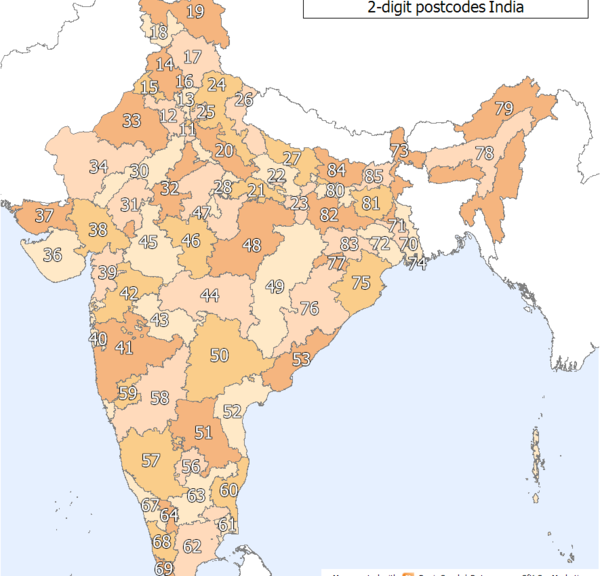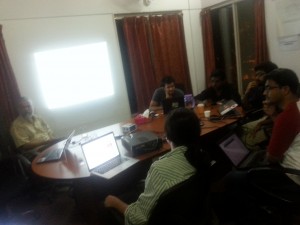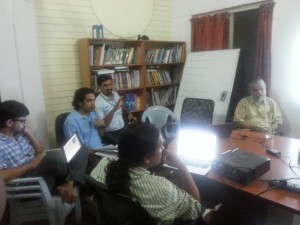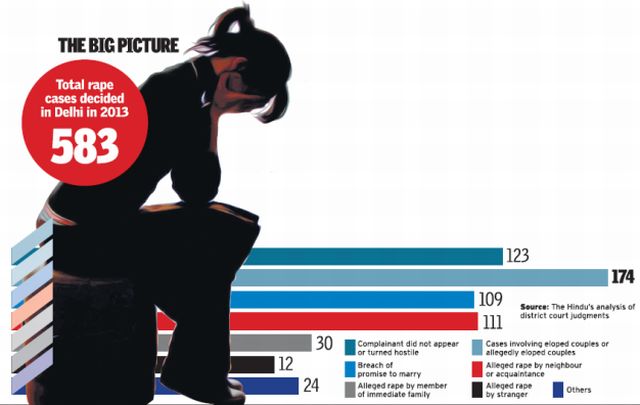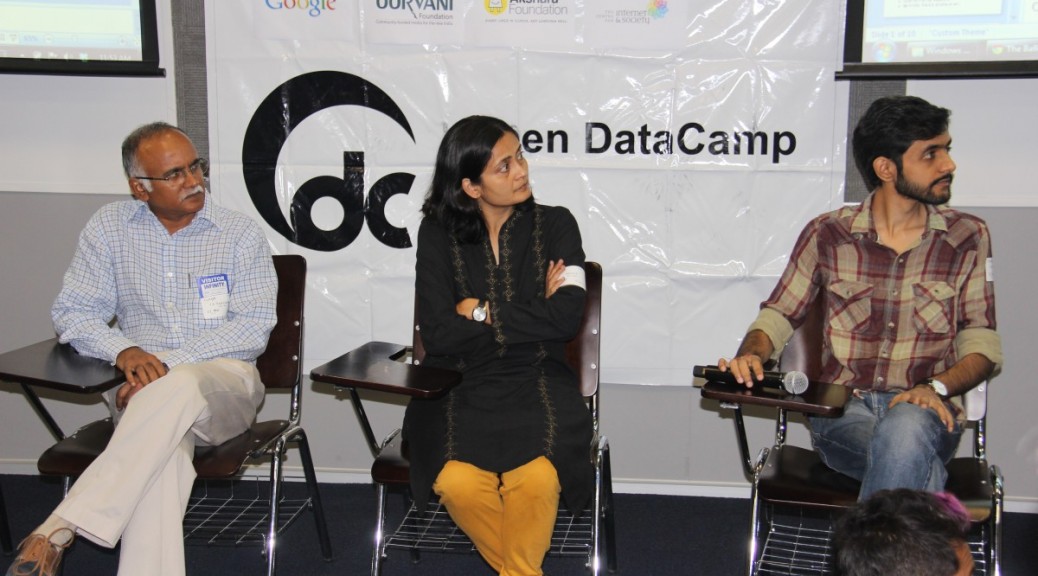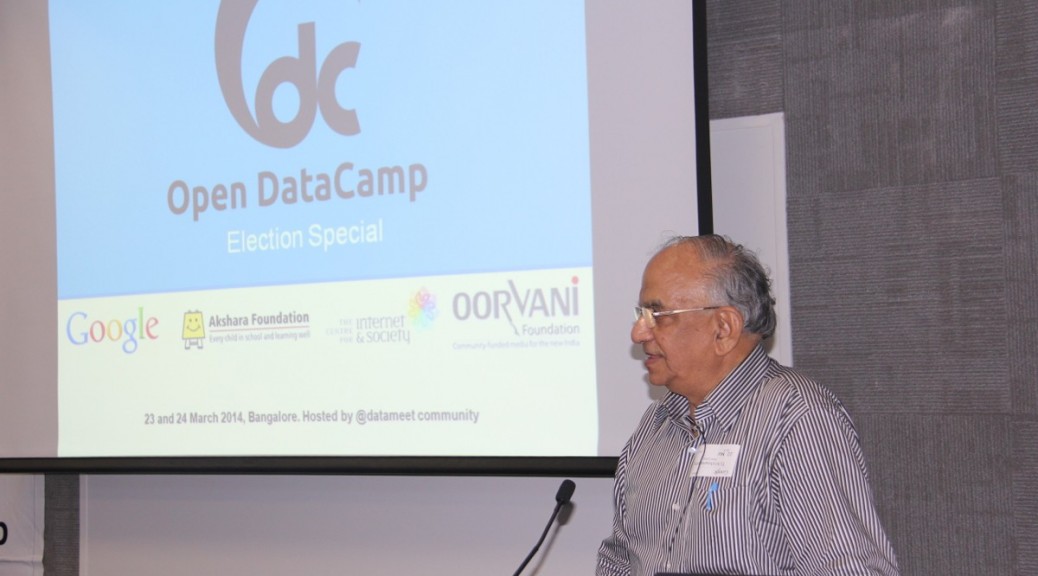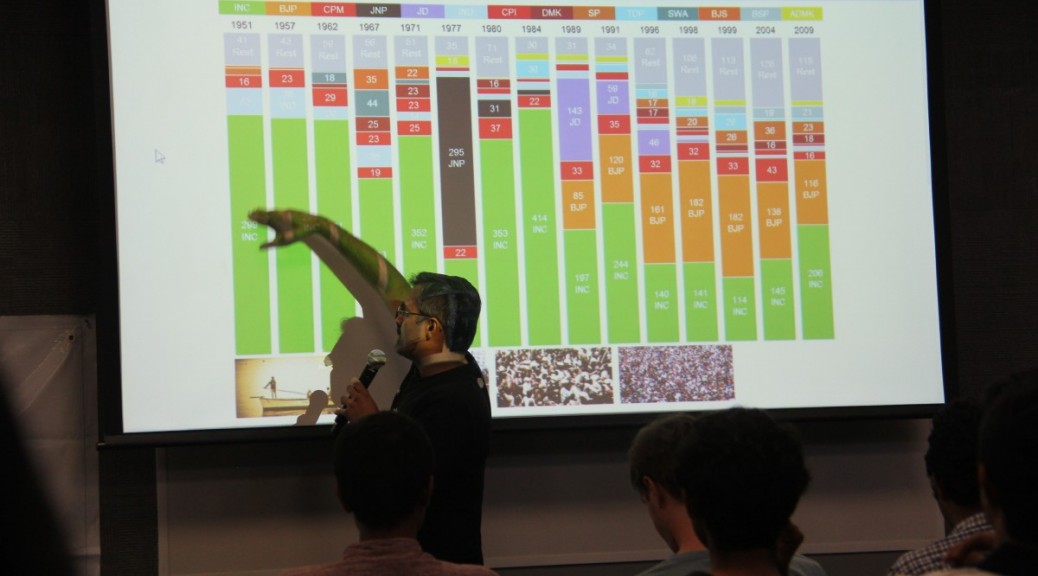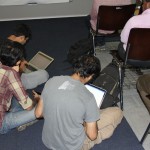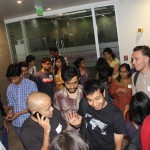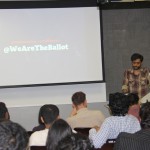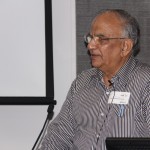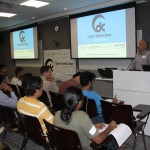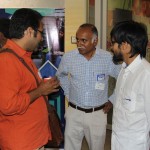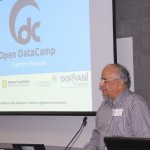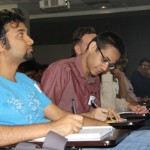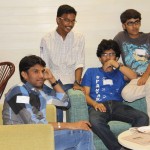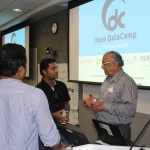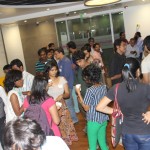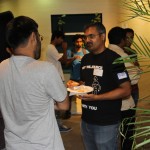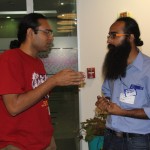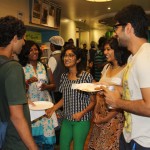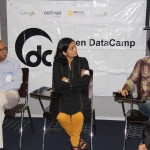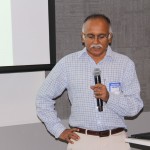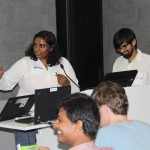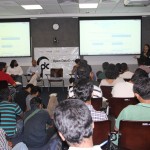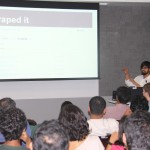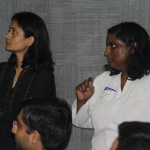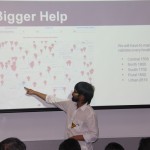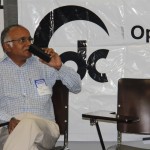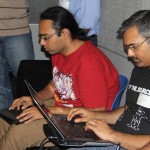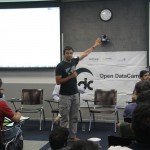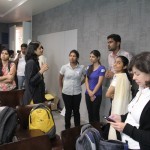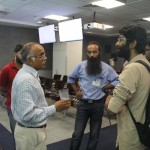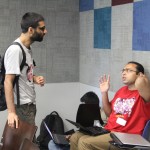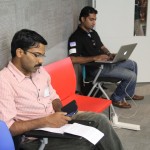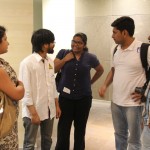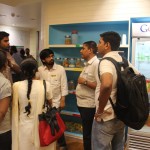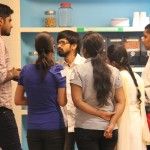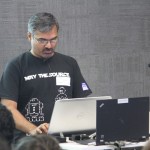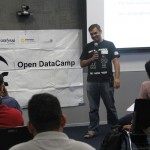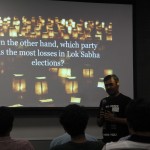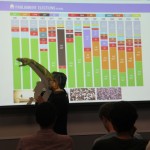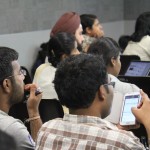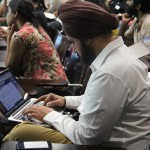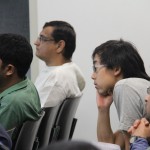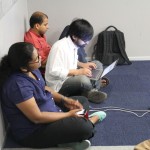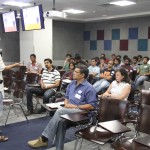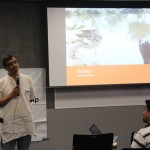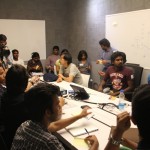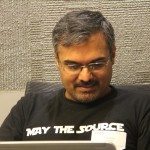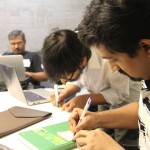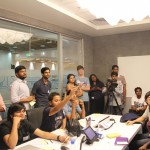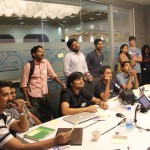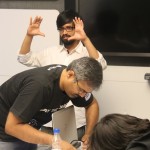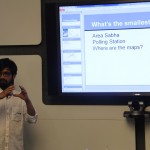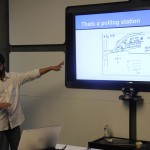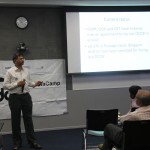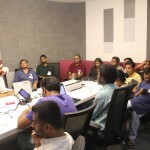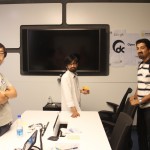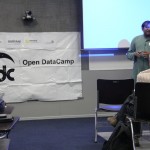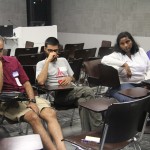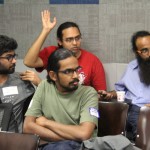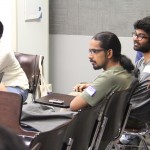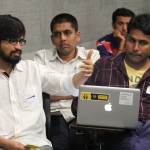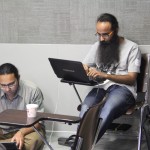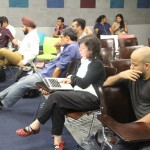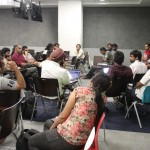Last Thursday the Bangalore DataMeet did a screening of the Aaron Swartz Documentary: The Internet’s Own Boy.
Aaron was a developer, technologist, entrepreneur, and a passionate open culture and progressive activist, who had been instrumental in creating Creative Commons and Reddit. Last year when he took his life in the wake of aggressive prosecution by the US Government, for downloading academic journals through MIT’s network. The open culture/access/data movement was hit by a great loss but also had to pause and take to understand what the actions taken by the government meant.
We wanted to show the movie here and then have a discussion on the Indian context, can this happen here? Can people who believe in open access be targeted as well? The group was small at the screening as we spent the evening discussing the THE KARNATAKA PREVENTION OF DANGEROUS ACTIVITIES OF BOOTLEGGERS, DRUG-OFFENDERS, GAMBLERS, GOONDAS, IMMORAL TRAFFIC OFFENDERS AND SLUM-GRABBERS ACT, 1985, or better known as the Goonda Act (a Goonda is a slang term for gangster.)
The Goonda Acts are basically state level laws that provide a legal definition of what a Goonda is in several situations and prescribes ways the police are allowed to deal with them. The law in Karnataka was enacted in 1985 and had recently been amended to include new provisions including new offenders one being the digital offender.
The 1985 act includes the following:
When the Goonda Act can be invoked?
“Explanation.– For the purpose of this clause, public order shall be deemed to have been affected adversely or shall be deemed likely to be affected adversely inter alia if any of the activities of any of the persons referred to in this clause directly or indirectly, is causing or is calculated to cause any harm, danger or alarm or a feeling of insecurity, among the general public or any section thereof or a grave or widespread danger to life or public health.”
What powers does the state have?
“3. Power to make orders detaining certain persons.- (1) The State Government may, if satisfied with respect to any bootlegger or drug-offender or gambler or goonda or immoral traffic offender or slum-grabber that with a view to prevent him from acting in any manner prejudicial to the maintenance of public order, it is necessary so to do, make an order directing that such persons be detained.”
When is this Act valid or invalid?
(a) such order shall not be deemed to be invalid or inoperative merely because one
or some of the grounds is or are ,
(i) vague ;
(ii) non-existent ;
(iii) not-relevant ;
(iv) not connected or not proximately connected with such person; or
(v) invalid for any other reason whatsoever ;
and it is not, therefore, possible to hold that the Government or the officer making such
order would have been satisfied as provided in sub-section (1) of section 3 with
reference to the remaining ground or grounds and made the order of detention ;
How long can they detain you?
13. Maximum period of detention.- The maximum period for which any person may be detained, in pursuance of any detention order made under this Act which has been confirmed under section 12 shall be twelve months from the date of detention.
Provided that in a case where no fresh facts have arisen after the revocation or expiry of the earlier detention order made against such person, the maximum period for which such person may be detained in pursuance of the subsequent detention order shall in no case, extend beyond the expiry of a period of twelve months, from the date of detention under the earlier detention order.
How can you address the system for wrongful detention?
16. Protection of action taken in good faith.- No suit, prosecution or other legal proceeding shall lie against the State Government or any officer or person, for anything in good faith done or intended to be done in pursuance of this Act.
This Act gives the state a very powerful tool when it comes to dealing with people that have been deemed Goondas.
The 2014 Amendment added more to the list of potential offenders including people who are suspected of rape and acid attacks. It also included a Digital Offender
What is a digital offender?
“Any person who knowingly or deliberately violates, for commercial purposes, any copyright law in relation to any book, music, film, software, artistic or scientific work and also includes any person who illegally enters through the identity of another user and illegally uses any computer or digital network for pecuniary gain for himself or any other person or commits any of the offences specified under sections 67, 68, 69, 70, 71, 72, 73, 74 and 75 of the Information Technology Act, 2000”.
Several questions come to mind:
- How has this act been used in the past?
- Why was there a push to include digital offenders? In some articles it seems software companies are trying to go after piracy.
- The definitions are vague and can be used in a lot of instances. If I send my friend a copy of a song that I have purchased, can I now be taken to jail for 12 months?
“The law applies not only to audio and video pirates, but to Facebook, twitter, Whatsapp users too. Here is how the report explains it : “If govt thinks you are planning to send a ‘lascivious’ photo to a WhatsApp group, or forwarding a copyrighted song, you can be arrested”. – One India
According to the Economic Times there is support for adding digital offender in law enforcement as well as software companies.
The Goonda Act is much more stringent and is expected to bring down the offences considerably , said a police inspector in Bangalore who has dealt with cases of offences under the IT Act. “In future, we are likely to see more offences that are digital in nature. It is probably to effectively deal with such crimes that the government has proposed this amend ment. It is more futuristic in its outlook, and is likely to help Bangalore in a big way,” said the inspector, who did not wish to be identified. According to Naidu, the very mention of the name Goonda Act creates some sort of a fear psychosis among people.
“Right now, many people seem to have a casual attitude to digital offences. If the fear of Goonda Act works, it will not just boost the sale of our products but in the process increase the tax revenues of the government,” he said.
The amendment has bolstered the confidence of Bangalore-based start-ups like MRT Studios. “We do a lot of post-production work for films, and visual effects for films and television. While we provide services to our clients by investing in original software, there are others who do the same work using the pirated software for a fraction of the price that we charge. The fear of police will now force everyone to go for legal software,” said M Naveen Kumar, 31-year old founder of the seven-month old company.
There are two sides to every law and what the Aaron Swartz’s experience shows us is that anything is possible, and that intent is not always taken into account.
How do we make sure that the intent of the law is carried out and that people without malicious intent aren’t being unfairly targeted?
How do we examine the Copyright Act and the IT Act and make sure people understand what they entail and know what they are allowed and not allowed to do?
You can see the movie at this link. You can see our notes from the meet up here.
Please feel free to leave a comment or add your thoughts to the hackpad.
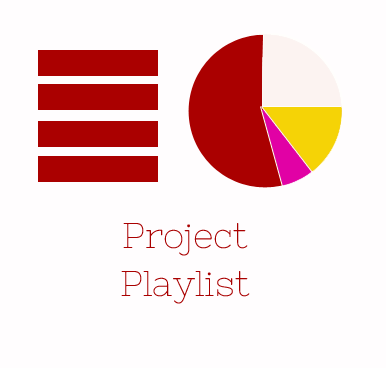
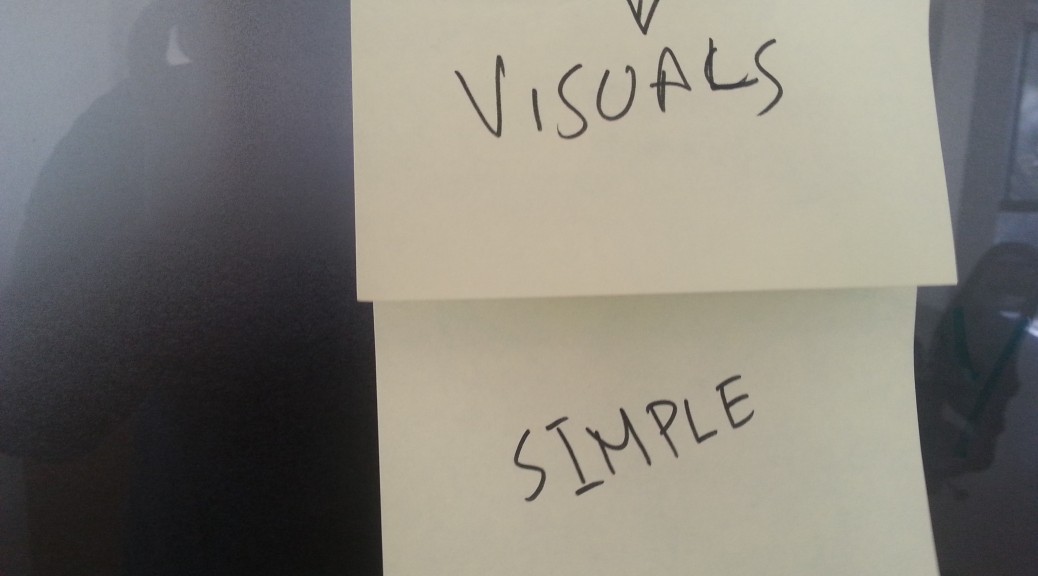
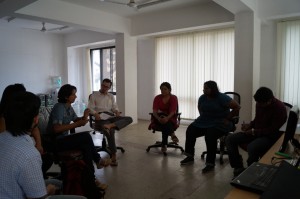
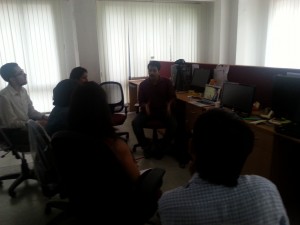
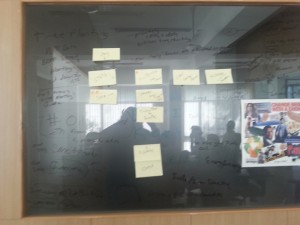
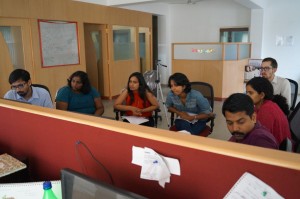
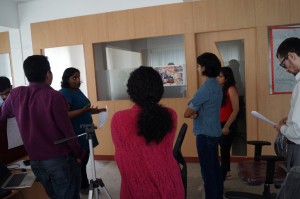
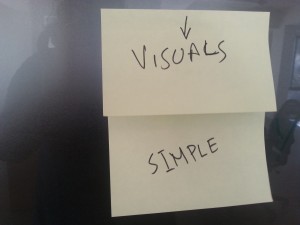
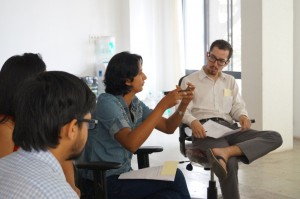
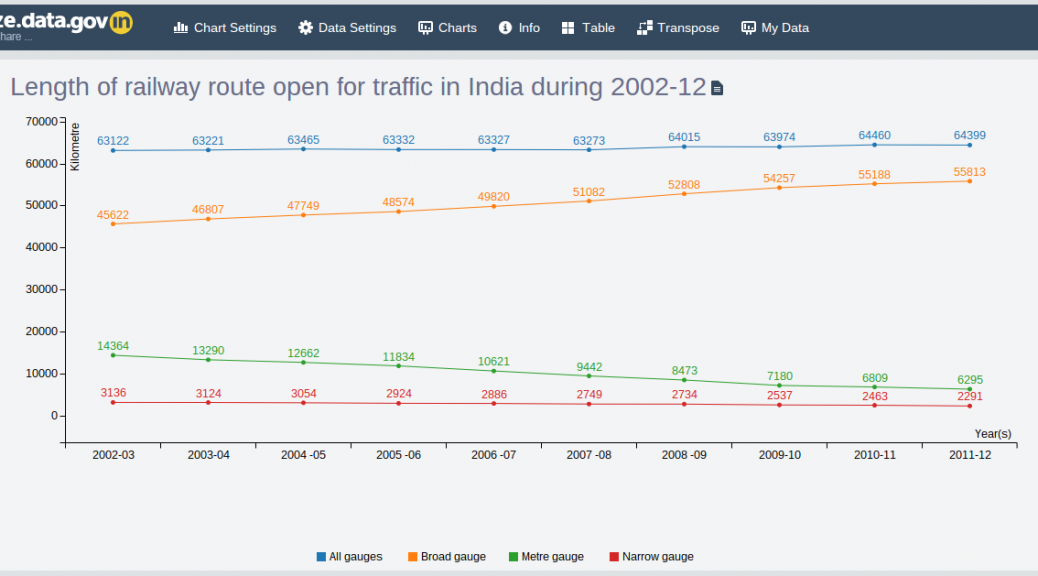

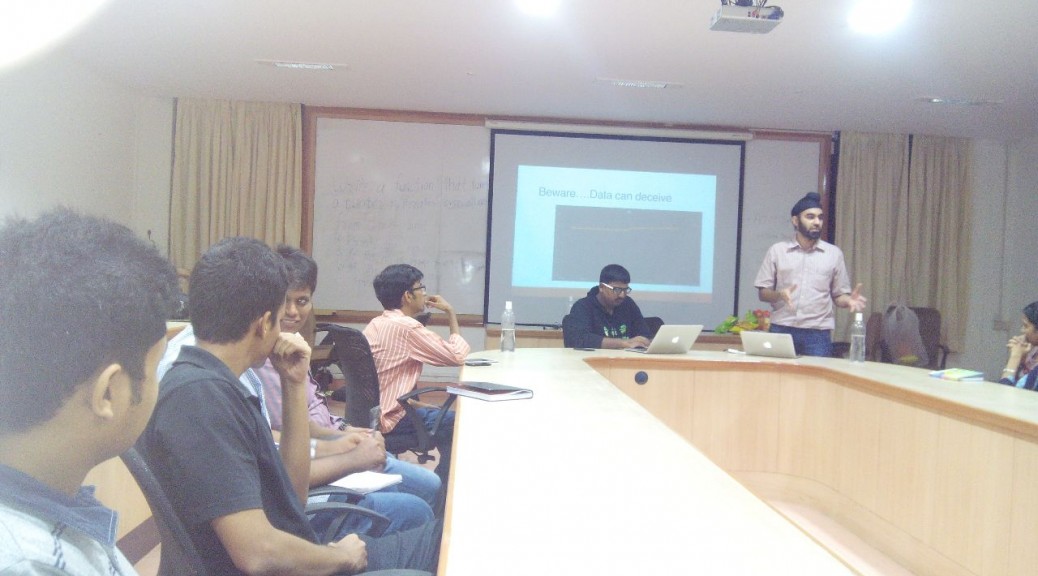
.JPG)


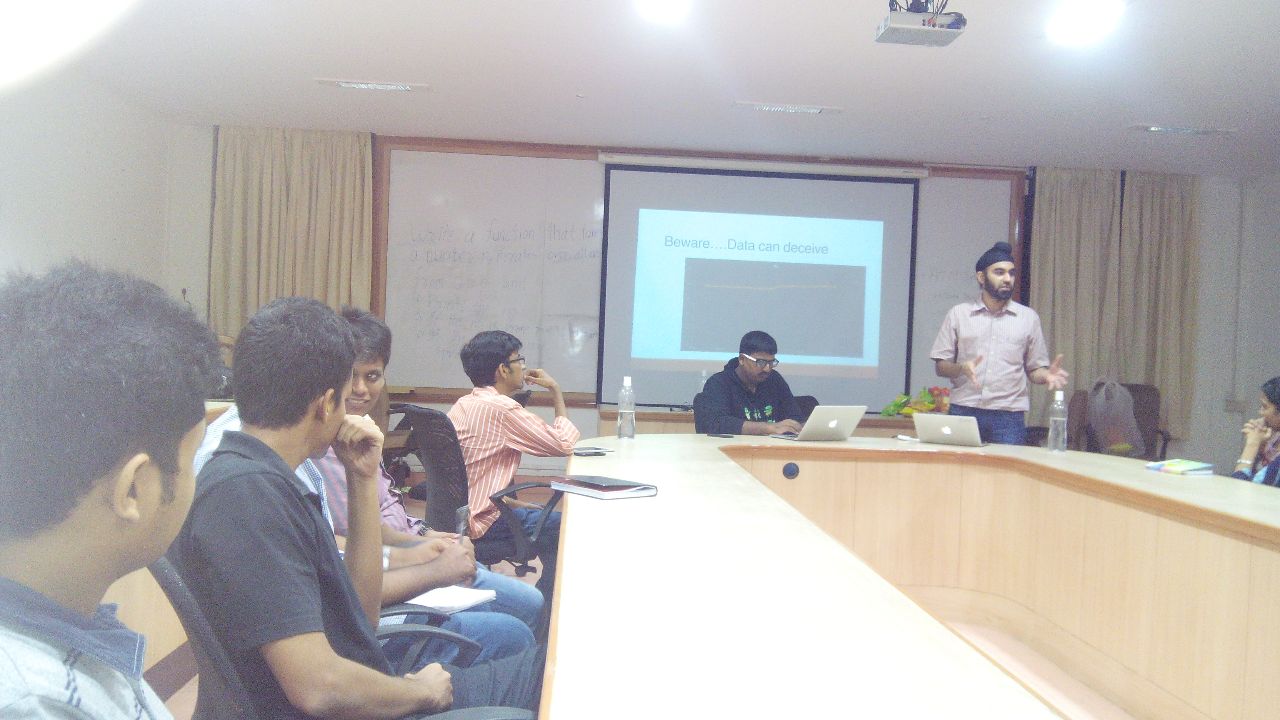

.JPG)


